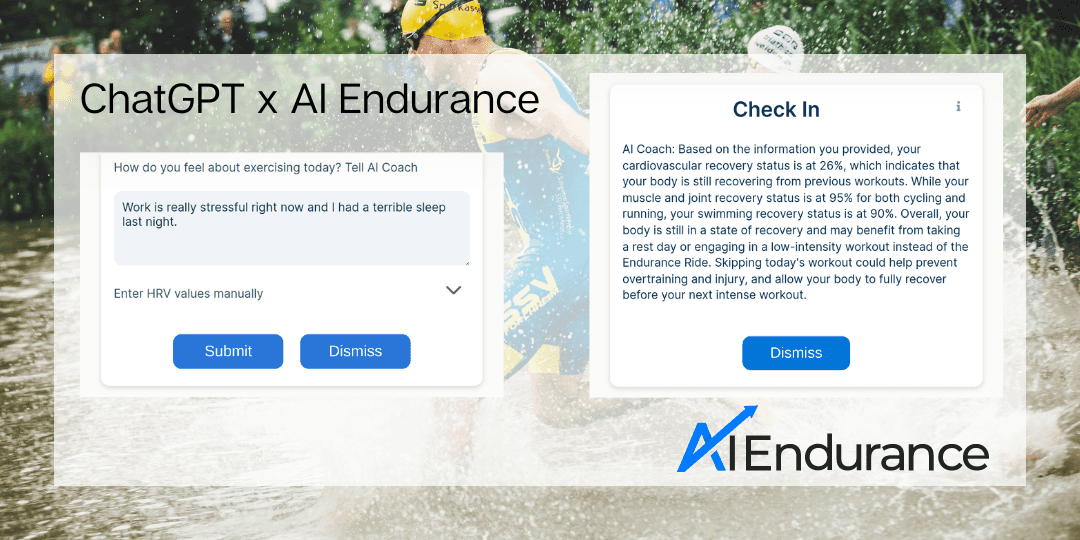
We explain how AI Endurance uses ChatGPT to help guide your triathlon, running and cycling training.
ChatGPT is an AI chatbot that is based on the generative pre-trained transformer (GPT) family of large language models (LLMs) from OpenAI. It can perform impressive tasks such as
just to name a few. This article is written by a human, by the way.
We embedded ChatGPT into our existing features for maximal benefit to your training routine. Our aim is to combine the strengths of our own AI models that are very specific to triathlon, running and cycling with the strengths of general LLM such as ChatGPT. Our own AI Endurance models are not language based like ChatGPT but 'number based' AI models. Combining the two approaches gives you as the user the best of both worlds:
A predictive AI to create the optimal personalized training plan and adaptations for you and an encouraging AI coach to gauge your sentiment and guide you through the numbers.
One thing that is hard to analyze in a 'number based model' is your sentiment. Your sentiment in this context can be your general motivation to train, your mental state, or general information about your life and/or training.
During your daily check in you can inform us via the 'How do you feel about exercising today? Tell AI Coach' dialog. ChatGPT is very capable in analyzing your sentiment. We use its verdict when we make decisions if you should go ahead with your training as planned, or if it may be better to skip or modify the workout of the day.
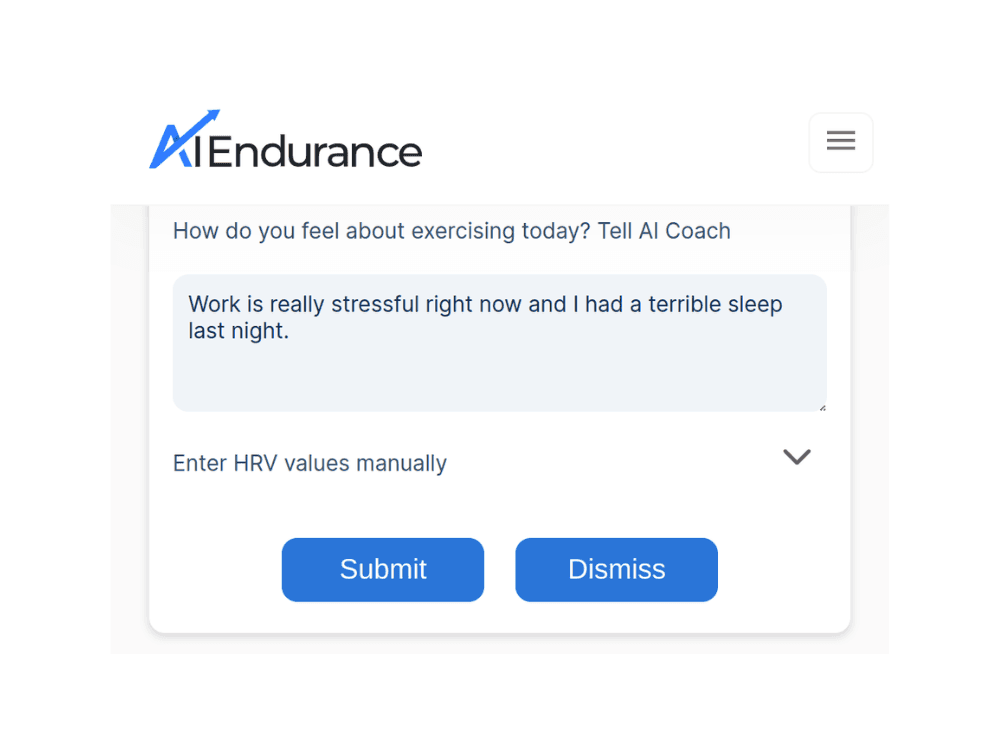
Informing us about your sentiment is particularly useful if it would otherwise be a blind spot for our recovery model. For example, a particular mental state such as 'Work is really stressful right now' may or may not show up in your recovery data. With this feature however, you can always let us know whatever it may be that might be going on at any given time.
Of course your sentiment doesn't have to be negative. You can also let us know if things are going well. The reality is we all have bad days and we want to protect you against training too much or under the wrong circumstances as much as possible.
Example statements you could submit may be
or
There's a lot of data that flows into our personalized recovery model.
The soreness of your different muscle groups for triathlon, running and cycling:
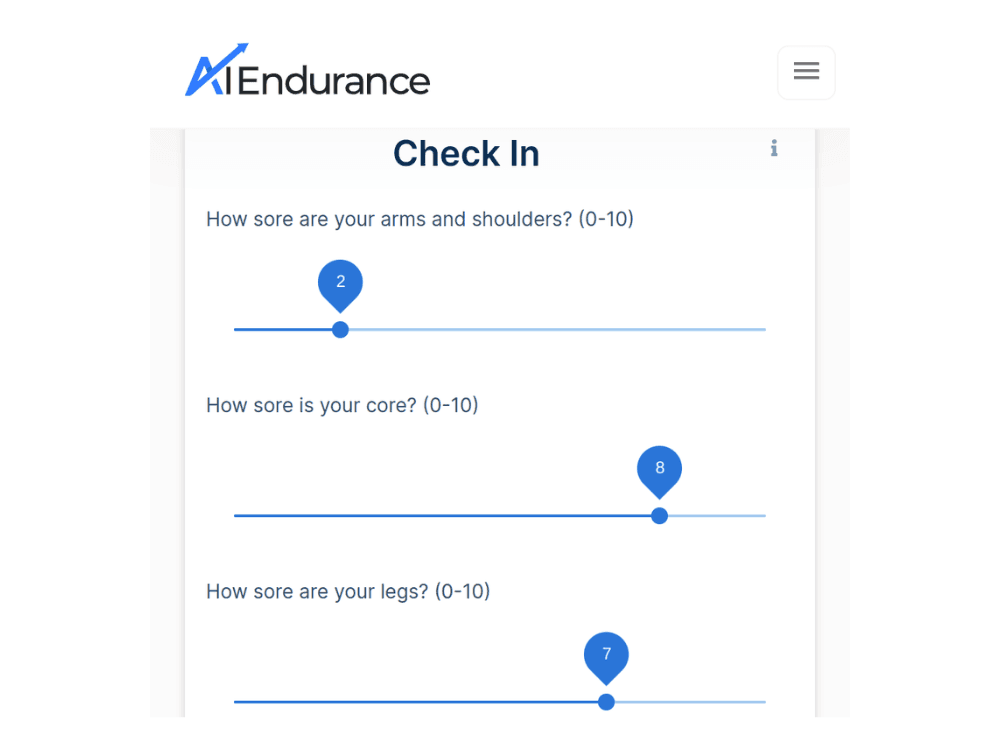
Your cardiovascular recovery:
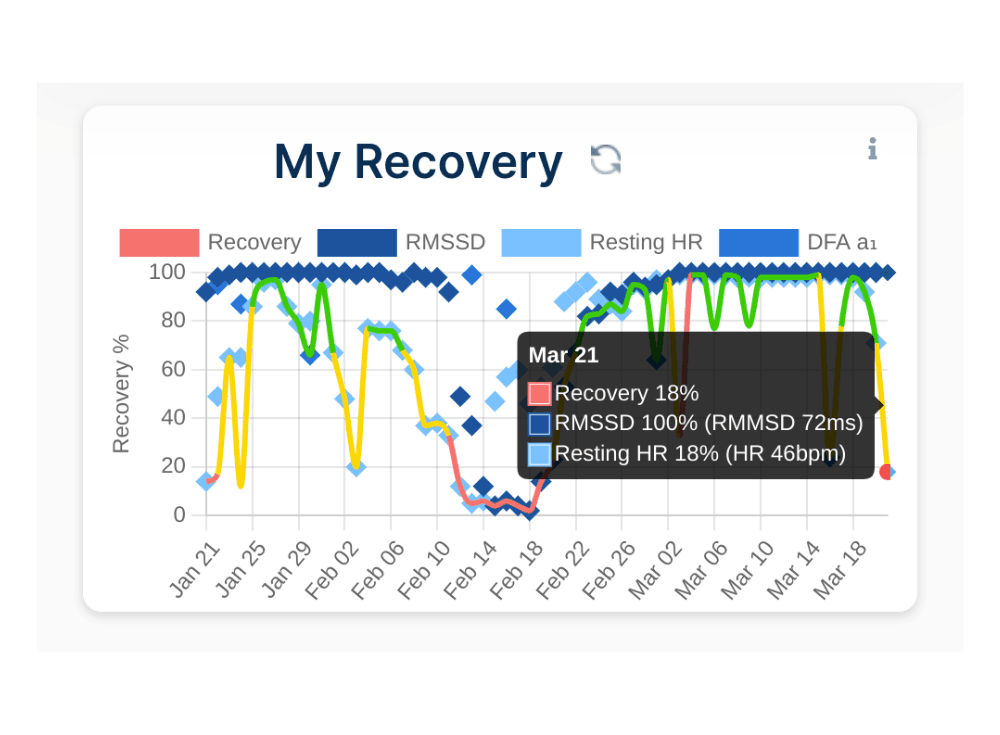
ChatGPT can give you a comprehensive summary of your recovery parameters and put these in the context of your overall triathlon, running or cycling training plan:
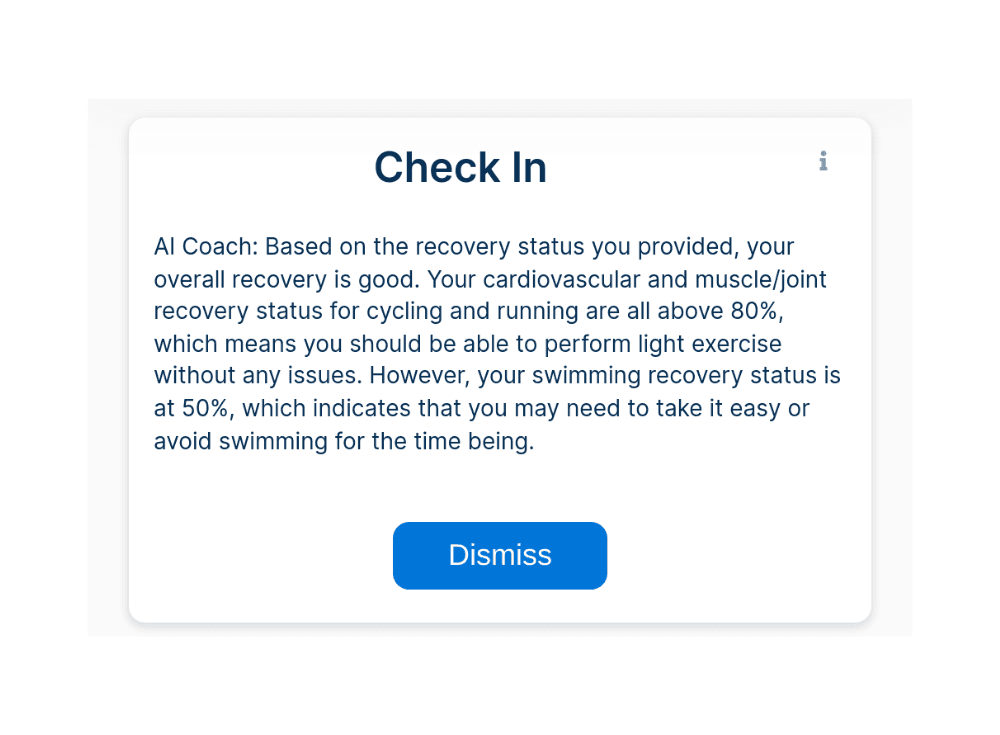
ChatGPT can put the triathlon, running or cycling workout planned for the day into context and explain its benefits:
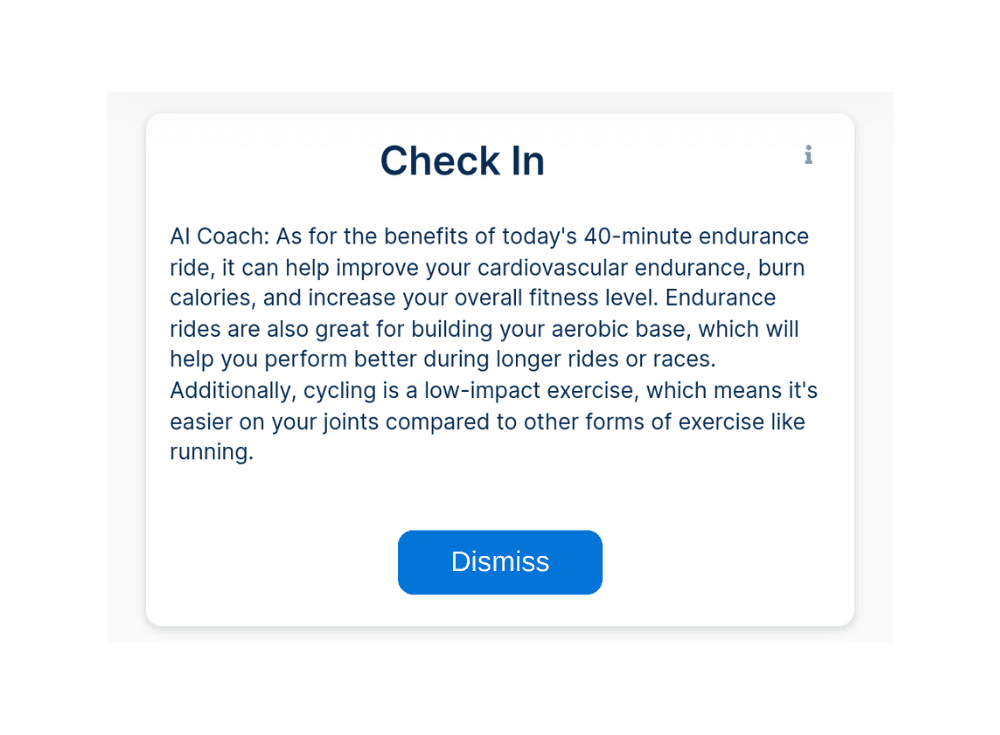
Similarly, it can explain why a rest day may be a good idea and come up with ideas for active recovery:
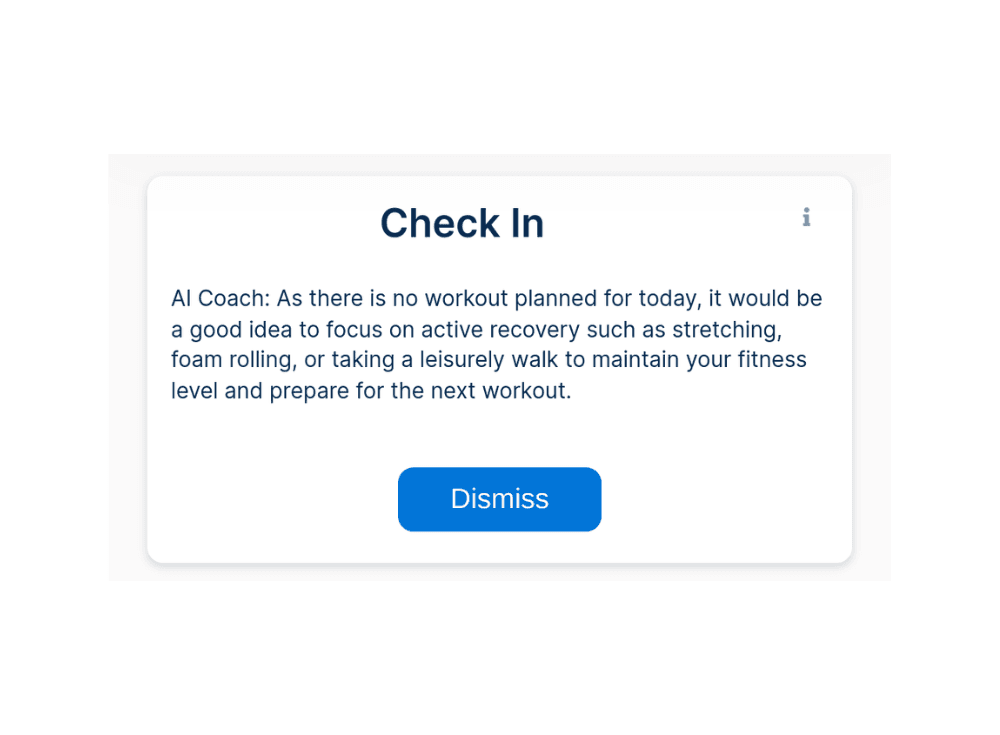
This may be the most important one: explain why a training plan modification has been made. To be clear, the decision if and when a training plan adaptation is proposed is based on the numbers. ChatGPT can help put things into context and explain to you why. Ultimately, it's up to you to accept or reject these proposed modifications.
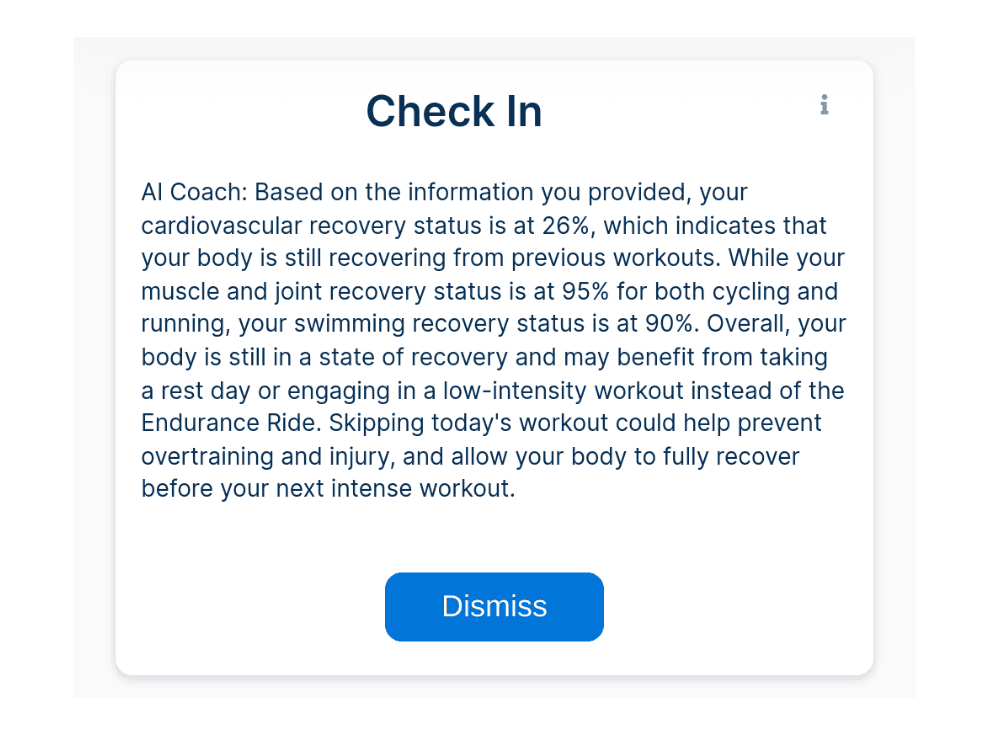
To summarize, at AI Endurance we use our custom numbers based models for triathlon, running and cycling together with a general LLM like ChatGPT for an optimal training experience. ChatGPT's impressive capabilities are already enabling features that would have been hard to imagine just a few months ago. We are just at the beginning of AI revolutionizing the triathlon, running and cycling world.
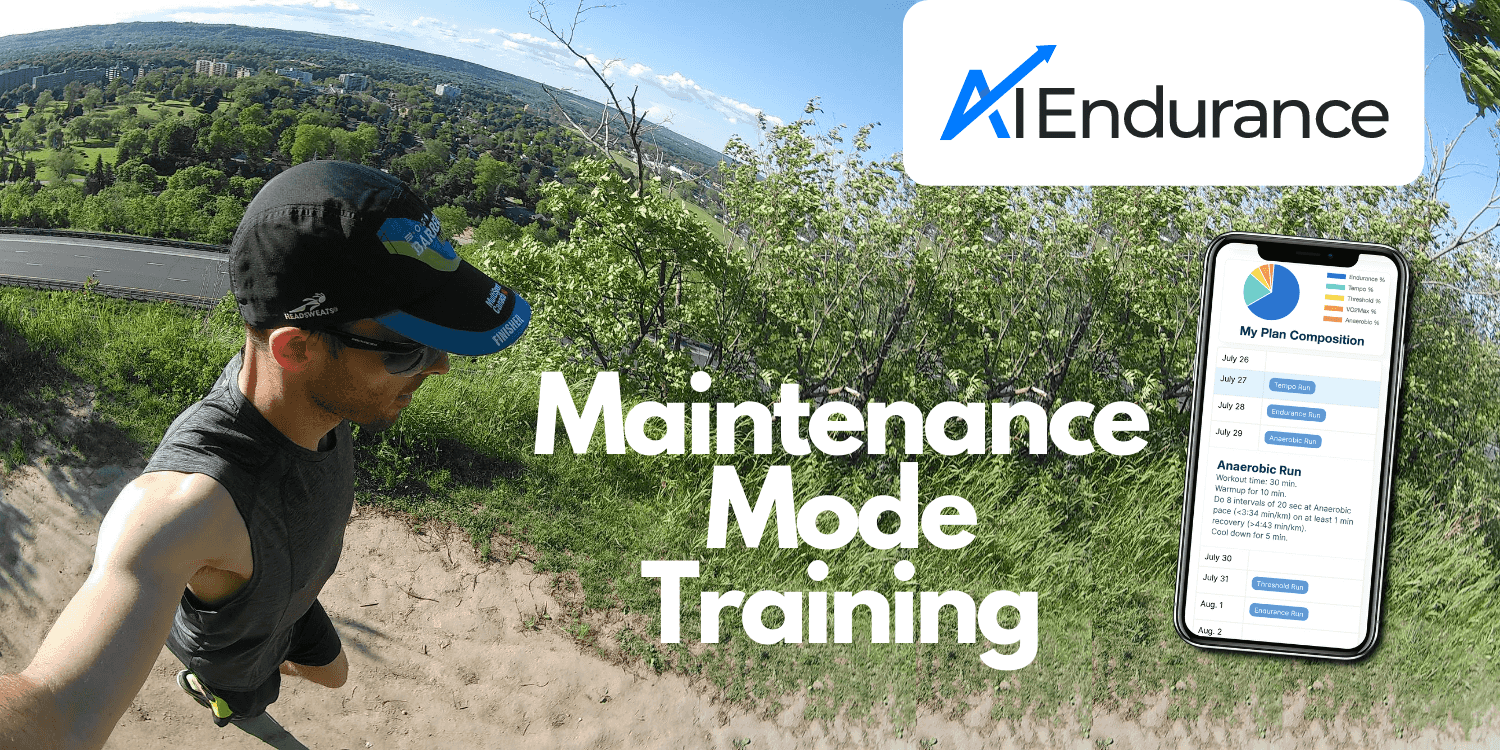
We get it, virtual races are not the same as actual races in terms of staying motivated. That's why AI Endurance is introducing a new maintenance running schedule to keep you in shape during the pandemic.

The world around us is changing, driven by technological advances that seek to improve our lives.

by Grant Paling. In my last blog, I closed the chapter on my European Championship race in Portugal. It definitely was an intense period leading up to, during and after the race. So many emotions, so much effort invested and then…what’s next?
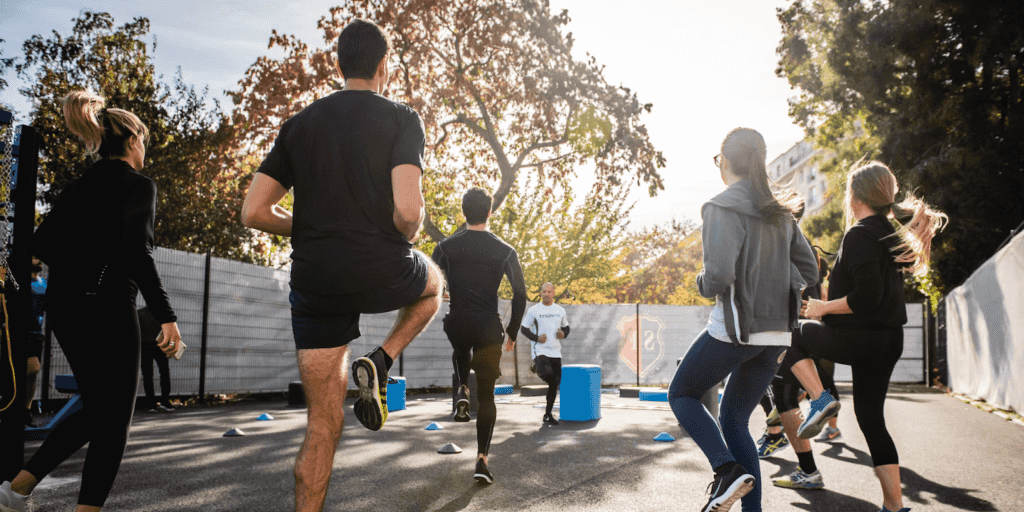
Coaching for runners can help you train smarter and reduce injury risk. Here's what you can expect from coaching, how it can help, what you can do to become a better athlete, and the differences between AI and traditional coaching.